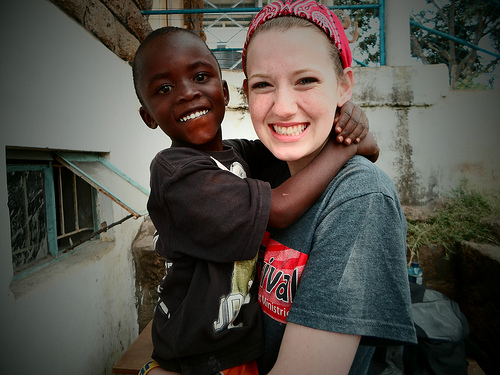Government Grants
Business Grants
Home Owner Programs
Federal Programs
About Us
Ecology and Evolution of Infectious Diseases
The multi-agency Ecology and Evolution of Infectious Diseases program supports research on the ecological, evolutionary, and social principles and processes that influence the transmission dynamics of infectious diseases.
The central theme of submitted projects must be quantitative or computational understanding of pathogen transmission dynamics.
The intent is discovery of principles of infectious disease transmission and testing mathematical or computational models that elucidate infectious disease systems.
Projects should be broad, interdisciplinary efforts that go beyond the scope of typical studies.
They should focus on the determinants and interactions of transmission among humans, non-human animals, and/or plants.
This includes, for example, the spread of pathogens; the influence of environmental factors such as climate; the population dynamics and genetics of reservoir species or hosts; the feedback between ecological transmission and evolutionary dynamics; and the cultural, social, behavioral, and economic dimensions of pathogen transmission.
Research may be on zoonotic, environmentally-borne, vector-borne, or enteric pathogens of either terrestrial or freshwater systems and organisms, including diseases of animals and plants, at any scale from specific pathogens to inclusive environmental systems.
Proposals for research on disease systems of public health concern to developing countries are strongly encouraged, as are disease systems of concern in agricultural systems.
Investigators are encouraged to develop the appropriate multidisciplinary team, including for example, modelers, ecologists, bioinformaticians, genomics researchers, social scientists, economists, epidemiologists, evolutionary biologists, entomologists, parasitologists, microbiologists, bacteriologists, virologists, pathologists or veterinarians, with the goal of integrating knowledge across disciplines to enhance our ability to predict and control infectious diseases.
The central theme of submitted projects must be quantitative or computational understanding of pathogen transmission dynamics.
The intent is discovery of principles of infectious disease transmission and testing mathematical or computational models that elucidate infectious disease systems.
Projects should be broad, interdisciplinary efforts that go beyond the scope of typical studies.
They should focus on the determinants and interactions of transmission among humans, non-human animals, and/or plants.
This includes, for example, the spread of pathogens; the influence of environmental factors such as climate; the population dynamics and genetics of reservoir species or hosts; the feedback between ecological transmission and evolutionary dynamics; and the cultural, social, behavioral, and economic dimensions of pathogen transmission.
Research may be on zoonotic, environmentally-borne, vector-borne, or enteric pathogens of either terrestrial or freshwater systems and organisms, including diseases of animals and plants, at any scale from specific pathogens to inclusive environmental systems.
Proposals for research on disease systems of public health concern to developing countries are strongly encouraged, as are disease systems of concern in agricultural systems.
Investigators are encouraged to develop the appropriate multidisciplinary team, including for example, modelers, ecologists, bioinformaticians, genomics researchers, social scientists, economists, epidemiologists, evolutionary biologists, entomologists, parasitologists, microbiologists, bacteriologists, virologists, pathologists or veterinarians, with the goal of integrating knowledge across disciplines to enhance our ability to predict and control infectious diseases.
Agency: National Science Foundation
Office: National Science Foundation
Estimated Funding: $20,000,000
Office: National Science Foundation
Estimated Funding: $20,000,000
Relevant Nonprofit Program Categories
Obtain Full Opportunity Text:
NSF Publication 18-581
Additional Information of Eligibility:
This grant program is only available to State, Local, and tribal government agencies, which include State public health, agriculture, and food protection agencies.
Grants are available to State agencies that have an existing Food Safety and Food Defense Task Force, as well as those that are in the process of developing a new Food Protection Task Force.
Only one grant will be awarded per State.
States are urged to collaborate between agencies to submit a single application.
Full Opportunity Web Address:
http://www.nsf.gov/publications/pub_summ.jsp?ods_key=nsf18581
Contact:
Agency Email Description:
If you have any problems linking to this funding announcement, please contact
Agency Email:
Date Posted:
2018-08-19
Application Due Date:
Archive Date:
2022-12-16
Social Entrepreneurship
Spotlight
When it Comes to Social Enterprises, Failure is the Best Platform for Innovation

In the world of social enterprises, failure is a cringe-worthy moment nobody wants to talk about. But, social entrepreneurs can benefit from their failures.

